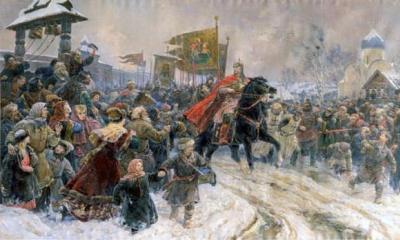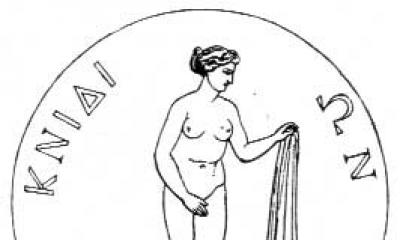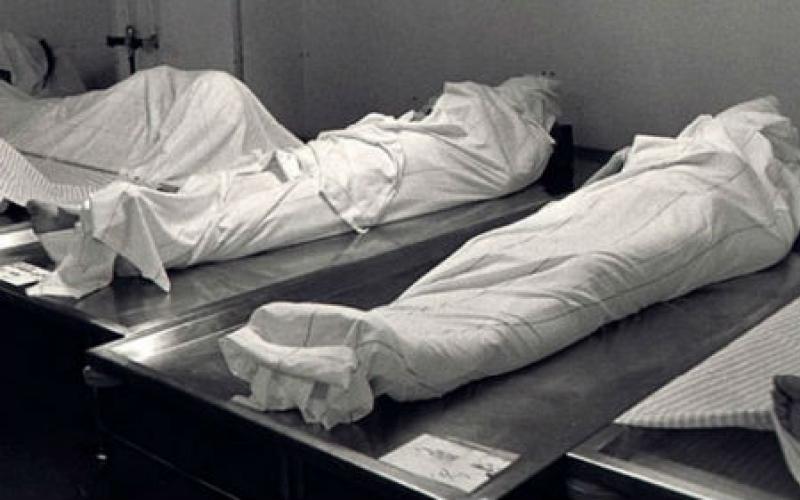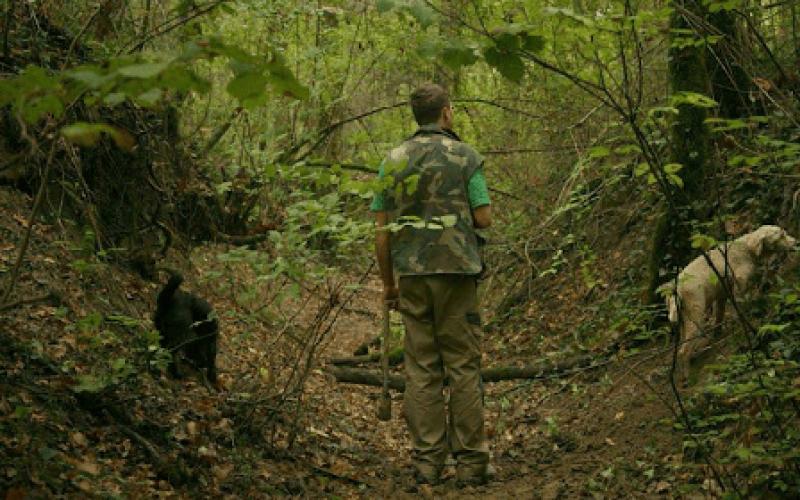Russian theater and film director Kirill Serebrennikov wrote an open letter in response to the refusal of Latvian artists to participate in the Moscow tour, and posted it on his page in social network Facebook. “The meanest and most ugly insidious thing in politics is the forcible placement of a person in a situation of terrible and painful choice - with whom to be, whom to join, whom to support. That is precisely what should be tried in Nuremberg and in The Hague. From horror this choice, which is the main manipulative resource of politics, is bursting at the seams of the entire human being. No one should ever choose what is better - to betray a friend or save a family, eat an older child or a younger one, so that at least one of the two survives in hunger , kill someone or survive yourself, agree to the meanness of silence or save the cause of life," writes Serebrennikov. In the director's opinion, politicians "buff" people. “Politicians and their propagandists slaughter people en masse, with rapture, camouflaging their speeches with patriotic or nationalist rhetoric. All the days when the “Crimean crisis” lasts, I am in correspondence with my Latvian colleagues. led to the polarization of opinions in Latvia and to a big scandal.Someone warmly supported this idea, convincing themselves and others that Latvia would fall next after the Crimea, and now in Latgale Russian troops stand in full combat readiness, someone urged not to break with such difficulty the cultural ties built over many years, namely in the theatrical sphere they are most successful - tours, productions of Latvians in Russia and vice versa. But the logic of war, the logic of "choice" takes its toll - the wonderful, unique actress Guna Zarinya will not come to play Medea at the Gogol Center, the tour of the National Theater, long planned for April, is disrupted. Its leader Ojars Rubenis, who all these years did an unprecedented amount to "soften morals", to bring the cultures of the two countries closer together, for peace and friendship, today found himself under aggressive pressure from those who, following the example of Hermanis, consider touring in Russia a betrayal of the interests of Latvia. Among those advocating a boycott of Russia there are also my friends, Latvians and even Russians living in Riga, I spent a lot of time with them, we got along very well, everything was peaceful and wonderful. It was. Now it's not like that. And now it won't be the same. For some reason, these young people found it easier to hear and support the call of Hermanis than to think with their own heads and understand that by touring in Russia they are supporting not the war, not the invasion of Crimea, but people, spectators, their colleagues, us. We, just like them, hate war and just want this nightmare to end as soon as possible. That by touring in Russia they would help to reduce the tension, to remind that we have much more in common than vice versa, that we are equally bad and anxious about what is happening in Russia and in the world, "the director emphasizes. Such behavior of creative people Kirill Serebrennikov is sure that it is beneficial for politicians. "Continuing in spite of everything, and not breaking off relations and destroying friendly ties, would mean that we, the people of the theater, do not believe politicians, that we, the people of the theater, do not want to live according to their laws, according to their models hatred, that we, people of the theater, do not want to obey their distorted logic. Alas, everything is now destroyed. Now they will not come to us, we will not come to them. And what happens? We ourselves unleashed a war on our territory. We lowered the iron curtain ourselves. Politicians triumph, the world obeys their fantasies, lays down in a position that is comfortable for them. I am sure that many years will pass for all the participants in the real war and this Facebook propaganda war, and for all the boycotters, and all those who call for the destruction of the "fifth column" in culture, related to the persecution of directors asking "Do we need such a theater?" , everyone will be at least very ashamed, and it will no longer be possible to simply say: "We didn't do anything, propaganda is not shooting at people." .Propaganda is the same war, only without pieces of iron and unidentified "peacekeepers in greenery". The methods are the same. It’s bad when smart, educated people believe her, when they make their “choice” at the behest of a jelly-like liar from a zombie or even a lost common sense talented director. And the wonderful actress Guna Zarinya, who urged us "not to be silent", wrote in her letter to the audience of the Gogol Center that "during the war, the muses are silent." And this irresolvable contradiction is a sign of our vile "choice time," the director concludes his open letter. As previously reported, three freelance artists of the Latvian National Theater have asked Kirill Serebrennikov's tour of Moscow's Gogol Center to be postponed in protest against Russia's military aggression in Ukraine. The New Riga Theater of Alvis Hermanis will not go to Russia either.
The director and the ghost of the "strong hand"
“Damn you... May you all die of fear of each other,” this is the censored version of the reaction to what happened to Kirill Serebrennikov from Avdotya Smirnova, the wife of Anatoly Chubais, one of the main symbols of Russian liberal reforms of the 90s. And such a reaction can be considered very typical for the Russian creative class.
Not all significant people in this environment considered it necessary, following the example of Chubais's wife, to use profanity abundantly. But almost everyone said something like this: the visit of the security forces to Serebrennikov is a collapse of the foundations, something completely unacceptable, immoral, cynical and even criminal.
I am far from drawing any conclusions about the guilt or innocence of the head of the Gogol Center. But here is the conclusion that lies on the surface: among the Russian creative class, no one was interested in the question of whether Kirill Serebrennikov committed financial violations or not. Everyone rushed to defend him because he is "their own" - the flesh of the flesh of the creative class, its intellectual and artistic leader and tribune.
Such a response is not necessarily wrong. But it is characteristic primarily for a society built on clan principles. A society for which the question is not: “Is the person guilty of being charged?”, but the question: “Is this person ours or not ours?”
I repeat once again: I do not distribute moral assessments and do not accuse anyone of anything. I'm just stating a fact: the stratum of Russian society, which considers itself the most modern and progressive, behaves in strict accordance with clan principles. From this we can conclude: our creative class has imagined itself too much. It is possible, but in my opinion it is not necessary. In the article “Party Organization and Party Literature,” Vladimir Lenin wrote: “It is impossible to live in society and be free from society.” This is exactly what our creative class does - lives in society and is not free from it.
One can castigate our "progressive intelligentsia" for a long time for the discrepancy between what they declare and how they actually behave. But let's ask ourselves a question: what part of Russian society behaves differently? In what part of Russian society is the clan principle not an organizational core and life guide? Among the security forces? Among officials? In a business environment? So it turns out: everything that can be accused of our creative class is hypocrisy.
Again, this does not necessarily mean that Kirill Serebrennikov's defenders are behaving incorrectly. From the point of view of the norms adopted in our society, they behave as they should: they appeal to the first person of the state, replicate supposedly, which, by the way, can easily be regarded as putting pressure on law enforcement agencies. And who will tell me: is it good or bad in modern Russian conditions to use the president to put pressure on investigators who are unraveling a specific criminal case?
When a cult public figure is detained in the West, everyone declares their state of shock, but at the same time they add: the court will definitely sort everything out. In our society, this phrase is also present - but only in a purely ritual sense. In Russia, there is no trust in institutions, including the courts, law enforcement agencies, and so on and so forth. There is a belief in Russia that any issue can be resolved by convincing the president of the fidelity of his picture of the world and that "ours" must be saved at any cost.
From someone's point of view, this is very bad. From someone's point of view, this is very good and convenient. But first of all, this is a given - a given that cannot be changed by changing the president, the prime minister, the head of the Supreme Court and the prosecutor general. Trust in institutions arises only when society gets used to the stability of its political system. We have not yet formed such a habit - and even in the best scenario, it will not form for many years.
This, in my opinion, is the deep political meaning of the unpleasant story that Kirill Serebrennikov fell into. Unwittingly, the fashion director became the protagonist of a convincing and large-scale performance about the hidden norms of being in modern Russian life.
Read materials
On August 22, Russian director Kirill Serebrennikov was arrested and placed under house arrest. Prosecuted for several months for embezzlement, the director faces up to ten years in prison. In Russia, as in France, his many supporters denounce such political zeal.
The Russian authorities have clearly declared war on the daring and provocative genius of Kirill Serebrennikov. For the past four months, the 47-year-old director has been prosecuted by the authorities, who accuse him of organizing the theft of 1 to 3 million euros of state subsidies given to him for the implementation of the theater project "Platform", which he led with his troupe during the period from 2011 to 2014.
On May 23, Serebryannikov’s apartment and the Gogol Center, the old theater that the director took over in 2012 and turned into a center for contemporary art, were raided. Serebrennikov was soon released and remained silent all this time, preferring to focus on the shooting of his next film. But on August 22, he was arrested again and brought before the court, which placed him under house arrest. The house arrest will last until October 19 and will not allow the director to finish the film and come to Stuttgart, where he is expected to attend the presentation of his production of the opera Hansel and Gretel.
French playwright and director, director of the Avignon Festival Olivier Py, immediately reacted to the news, calling the arrest "political". David Bobet, theater director, director of the National Dramatic Center of Normandy in Rouen and co-author of Serebrennikov, with whom he jointly staged numerous performances, was among the first supporters of the Russian director. Télérama presents to your attention his interview.
Télérama: How did you meet Kirill Serebrennikov?
Bob: I met him in 2009 when he taught at the Moscow Art Theater School. In 2011-2014, we worked together with him and his students on numerous performances within the framework of the Platform project, which we then presented in France: Hamlet, A Midsummer Night's Dream or Metamorphoses, as well as The Idiots based on the film of the same name by Lars von Trier and Dead Souls by Nikolai Gogol, which were presented at the Avignon Festival in 2015 and 2016.
The state allocated money to him specifically for the implementation of this project. And now he is accused not only of the fact that he did not deliver anything within the framework of this project, but also of the fact that he participated in the theft of public money. And we are talking about an amount from 1 to 3 million euros! That is, a list of events, posters of performances, tickets, contracts - all these documents confirming the existence of the project, were recognized as fake by the Russian authorities.
- Why such a desire to silence Serebrennikov?
Context
Kirill Serebrennikov: I want to live in the 21st century
Delfi.lv 15.01.2016Russia is a country of barriers
Der Spiegel 08.08.2017Too homosexual "Nureyev"
Die Welt 11.07.2017Kirill Serebrennikov: Today you can not be ashamed that you are a Russian
Liberation 02.03.2008Now the fate of Russia is being decided
Süddeutsche Zeitung 08/07/2017 — Because the harmful influence of his art is considered doubtful. In the play "Idiots" he shows the absurdity of the power machine in Russia. Priests come to his performances at the Gogol Center, who later in their reports call him a "pedophile director." To put a political oppositionist in jail, he is accused of embezzling public money, and this is a shameless lie!
Is it possible to separate art from politics in Russia today?
— In Russia, there are many artists who are ready to compromise and who have nothing to do with politics. However, I believe that any violence on the part of the state causes anger, which spills out in political works that have a powerful provocative force. In response to the omnipresence Orthodox Church In Russia, Kirill Serebrennikov is directing the film The Apprentice, which in 2016 won the François Chalet Prize, one of the prizes awarded at the Cannes Film Festival. Kirill is not a direct political oppositionist, it is his works that are political.
What is the extent of the director's support?
- In Russia, he is supported by a huge number of people. Almost all the stars, including those who are very close to the authorities and Putin, took the side of the director, chanted and spoke out against the absurdity of the situation. Among them: Fyodor Bondarchuk, Natalya Solzhenitsyna, the writer's widow, and Lyudmila Ulitskaya.
In France, many people supported Serebrennikov during his first arrest in May 2017. Among them, the director of the National Theater in Chaillot, Didier Deschamps, Beatrice Dahl, Olivier Pi and actress Isabelle Huppert, who during the Molière theater awards ceremony addressed Vladimir Putin, who was on a visit to France, “leave Serebrennikov alone” and “it’s better to go and see his performances.” If that's not enough, perhaps we should consider asking our heads of state to make a decision and offer Kirill political asylum in safe country. This undermines the freedom of creativity and expression.
The materials of InoSMI contain only assessments of foreign media and do not reflect the position of the editors of InoSMI.
The Investigative Committee stated that it had exhaustive evidence of Kirill Serebrennikov's guilt. The creative intelligentsia basically supports a colleague and demands indulgence towards him. However, according to the security forces, the case is in an active stage, so it cannot be ruled out that new episodes will appear in it. Political columnist Kommersant FM Dmitry Drize believes that the story is indicative.
The Investigative Committee issued an explanation: the guilt of Kirill Serebrennikov was confirmed by the testimony of witnesses, operational materials and financial documents, and the investigation is actively ongoing: a new defendant has appeared - the executive producer of the play "A Midsummer Night's Dream" Ekaterina Voronova.
According to the investigation, Serebrennikov and his subordinates - Yuri Itin, Alexei Malobrodsky, Nina Maslyaeva and the specified Voronova - committed violations when working with state money during the implementation of the Platform project. In particular, we are talking about the illegal cashing of allocated funds, incorrect assessment of the cost of work, and so on. As a result, a well-known director with a worldwide reputation is accused of fraud on an especially large scale - we are talking about the amount of 68 million rubles. True, the Investigative Committee did not explain what was the point of detaining the director at night and urgently transferring him from St. Petersburg to Moscow, and earlier taking away a passport for a not entirely clear examination. Serebrennikov himself called all the accusations against him "absurd".
When high-profile criminal cases happen in modern Russia, it is customary to look for a hidden meaning. There are several standard versions that are constantly being discussed, since there are no fewer such stories: this is either a struggle between the Kremlin towers - the confrontation between liberals and security forces from power, or a message to recalcitrant cultural figures so that they do not stir up opposition moods with their creative experiments.
At first glance, it can be assumed that the Serebrennikov case is completely unprofitable for the authorities. Elections are ahead, and high-profile events disturb public peace, create an unnecessary emotional background and excite the minds of the intelligentsia - which country will we see in the new political cycle? There was hope for reforms, but they got another tightening of the screws, that is, no non-standard thinking, modern art, but only spiritual bonds and traditional values, even if not all officials still understand what it is.
It is noteworthy that the story with Serebrennikov is the second high-profile event in one mystical August for Russia. It unwinds against the backdrop of the trial of Alexei Ulyukaev. Yes, and many governors are in jail - here Nikita Belykh, despite health problems, remains in the pre-trial detention center right up to February.
Of course, not everything is going well in the country in terms of corruption and theft of budget funds, and it is important for the state to show that this evil is being fought uncompromisingly. But from the side it is striking that the violations are precisely on the semi-liberal non-standard creative flank. But on the other side there is silence, and everything seems to be in order. Unless the cormorants will punch holes in the roof of the new handsome stadium.
Although, if you look closely, not everything is in order in the state. For example, in Rostov-on-Don, houses are burning en masse. Among the versions - arson in order to seize property. Or here are the events in Surgut. Everywhere the security forces would be as active as with the Serebrennikov case.
https://www.site/2017-08-23/ekaterina_vinokurova_o_dele_kirilla_serebrennikova
“Such people prove that Putin’s Russia is not a country of victorious evil”
Ekaterina Vinokurova about the case of Kirill Serebrennikov
 Alexander Vilf / RIA Novosti
Alexander Vilf / RIA Novosti
Just a few months ago, when news agencies gave the first reports about searches in the Gogol Center, everything that happened seemed like a phantasmagoria. Kirill Serebrennikov is one of the most famous and successful Russian directors, equally loved by people of various political views, very different social and social status, wealth and attitude.
Yesterday, the phantasmagoria received an unexpectedly-expected (for someone else) continuation. Serebrennikov was detained in St. Petersburg. From a witness in the case of violations of the spending of public funds on the platform project to popularize contemporary art, he became a defendant. And now his fans are gathering at the Basmanny Court - from Polina Deripaska and Svetlana Bondarchuk to young hipsters or just theatergoers, and Serebrennikov is led by them in handcuffs.
"Guardians" have already begun to attack Serebrennikov. Here are a few lines of this attack. Line one: "this is not art, it has naked people on the stage." Line two: "how can one receive state funding and make performances that do not serve the interests of the state?" The third line: "if he is a great director, then what is he, everything is possible"?
I have not read the materials of the case and, unlike the guards, I am not going to judge the investigation now by the bits of information that are known to the public.
Let's talk better about the arguments of those who oppose Serebrennikov. Let's start with the idea that the director allegedly bred intolerable liberalism on and off stage, while receiving state funding.
Many now call Kirill Serebrennikov the chief theater director for the "creative class", by which it is customary to mean not only people of creative professions, but all those "well-dressed people" who, on a cold December day in 2011, suddenly wanted a little more than a well-fed life in stable zero, and went out into the cold to freeze for freedom and for the right to independently choose their own power. For that romantic impulse, this very “creative class” has been listed as the main collective “enemy of the Russian people” for the sixth year already, and those of its representatives who, by the nature of their occupation, turn out to be at least indirectly connected with the state. In the traditional guardian logic, those who have received at least one penny from the budget become not a partner for the state, but service personnel. He must lick the giving hand and, wagging his tail, humbly serve any state order.
Such a system of relationships gradually and inevitably led to the fact that a significant part of the cultural products produced in Russia became simply indigestible. The dull sweeping films of the collective Mikhalkov on the same theme of the Great Patriotic War, grandiose statues of Tsereteli, “patriotic” exhibitions of the Russian Military Historical Society about myths about the same Great Patriotic War, endless projects on the topic of spirituality and bonds, exhibitions “Romanovs”, “Rurikovichs” with propaganda of the history of confrontation between Russia and the West ... All these products are similar in main. They are extremely, furiously boring. They are interesting to watch, in general, from one point of view - the structure of the state propaganda machine in the early 1910s. Moreover, the funniest thing in this whole story is that all these epic paintings are served under the sauce “our Hollywood”, “our Pearl Harbor”, well, the next attempt will obviously be “our Game of Thrones”, that is, a deeply secondary product . And yes, it is precisely such projects that in recent years have been eating up the lion's share of the budget allocated Russian state to support culture.
At the same time, a completely different kind of art begins to flourish, which can be called intellectual. Russian documentary filmmakers collect awards all over the world. Dmitry Chernyakov puts on operas at La Scala and in Paris. Kirill Serebrennikov, Konstantin Bogomolov and other modern directors are welcome and long-awaited guests at all major European festivals. The wonderful TV series “Thaw” and “Optimists” are coming out, which suddenly show the Soviet period without vulgar nostalgia. And Andrei Zvyagintsev's parable "Leviathan", filmed without a single large-scale battle scene, is nominated for an Oscar. It turned out that Russian intellectual art is capable of collecting not only awards, but also full halls, both in Russia and around the world. Without trying to make “our Hollywood”, “our scouts”, “our Andy Warhol”, Russia has shown that it is capable of creating a truly unique and at the same time mass product.
At a time when Russia was increasingly withdrawing into isolation and defense from external enemies, at a time when Russians began to be demonized — let us recall, for example, the tragicomic strips of recent American newspapers — intellectual art remained virtually the only Russian soft power, the only way to break through the exclusion zone between Russia and the rest of the world. The face of Russia in the international arena today is not only the unfunny jokes of Maria Zakharova, but also intellectual art, which by its very existence proves that Putin "s Russia is not a country of victorious evil. If our government were smarter, it would just be worth it to learn how to correctly use the same Bogomolov, Serebrennikov, Zvyagintsev in the role of emissaries of the world, people who prove the complexity and versatility of today's Russia, and not curse them from the screens of state television channels.
As for the second argument, that, they say, Serebrennikov, and all other modern theater and film directors, are “bare asses” or scum, professional art critics will explain better than me. Let's put it this way, firstly, such accusations have been made in all epochs against any innovative art, and secondly, just read the complete works, and at least Alexander Pushkin. Art becomes a classic over the years and centuries, and for contemporaries it is almost always an excessive innovation. If Serebrennikov had staged only performances about “bare asses”, probably thousands of spectators would have found a different way to spend their time, and Serebrennikov’s audience would not have exceeded the average audience of a strip club.
Finally, with the third argument (“if he is a great director, then what can he do, everything is possible”?) At this stage, it is generally absurd to argue. So far, we have not seen any evidence from the prosecution or defense arguments. We can only say one thing.
We saw how Yevgenia Vasilyeva, a close friend of the ex-Minister of Defense Anatoly Serdyukov, got off with a slight fright in court, who was accused of embezzling more than 360 million rubles (she spent time in a pre-trial detention center and a colony from about May to August, after which she was rushed off into a bright future black Mercedes). We saw footage of the search at the home of the head of the Federal Customs Service, Andrei Belyaninov, who kept wads of money in shoe boxes, but immediately after his resignation turned out to be uninvolved in the smuggling criminal case. We saw how the daughter of the head of the electoral committee of the Irkutsk region, Anna Shavenkova, was amnestied, who knocked down two women to death.
Against this background, Kirill Serebrennikov in any case looks like a figure worthy of mercy.
And the last. It is clear that all the attention of the public is focused precisely on the figure of Serebrennikov himself. But let's not forget that not only Serebrennikov is accused in this case, and that it is necessary to save not only him alone, but also CEO"Seventh Studio" Yuri Itin, former director of the "Gogol Center" Alexei Malobrodsky, chief accountant of the "Seventh Studio" Nina Maslyaeva.
Cursing Maslyaev for the fact that elderly woman, who did not have a lawyer, succumbed to the intimidation of the investigation and gave evidence in order to get out of the pre-trial detention center (by the way, she was deceived) - this means becoming like those same guards. Nina Maslyayeva deserves mercy, support and help no less than all the other defendants in this case.








